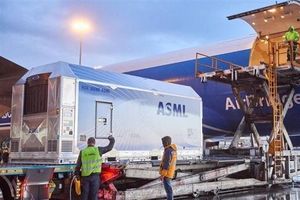On October 16, 2025, the UK government took a decisive step in its ongoing campaign for fair pay, publicly naming and shaming nearly 500 employers—among them some of the country’s most recognizable brands—for failing to pay the minimum wage to tens of thousands of workers. The Department for Business and Trade (DBT) released a comprehensive list of 491 companies, including British Gas’s parent company Centrica, EG Group (Euro Garages), Holland & Barrett, and Go Outdoors, all of whom were found to have underpaid their staff over several years. The total fines levied against these businesses reached a staggering £10.2 million, with more than 42,000 employees ultimately repaid over £6 million in lost wages.
According to the BBC, the government’s investigation revealed that some of these underpayments dated as far back as 2013, though the majority occurred between 2015 and 2021. The DBT’s findings were clear: employers had short-changed their staff by failing to meet either the National Minimum Wage or the National Living Wage, the latter of which currently stands at £12.21 per hour for workers aged 21 and over. For those aged 18 to 20, the minimum wage is £10 per hour, while apprentices and those under 18 must receive at least £7.55.
Business Secretary Peter Kyle made no bones about the government’s stance on the issue. In a statement quoted by NationalWorld, he said, “Every worker deserves a fair day’s pay for a fair day’s work, and this government will not tolerate rogue employers who short-change their staff. I know that no employer wants to end up on one of these lists. But our Plan to Make Work Pay cracks down on those not playing by the rules.”
At the top of the DBT’s list was EG Group, best known for its petrol forecourts and Starbucks franchise operations. The company, co-founded by billionaire brothers Mohsin and Zuber Issa (who have since stepped back from day-to-day leadership), underpaid 3,317 workers by a total of £824,384 between 2015 and 2019. That’s an average of about £250 per affected employee. EG Group has significantly reduced its UK operations over the past year, selling off its petrol forecourts and Cooplands bakeries, but continues to run Starbucks outlets across the country.
Responding to the government’s findings, an EG Group spokesperson told BBC, “These historic payroll issues that took place between 2015 and 2019 have been fully rectified. All affected employees were subsequently reimbursed in full in agreement with HMRC. Once these issues were identified, we implemented robust remedies to ensure future compliance in recognition of our employees’ vital contribution to our business. We are committed to the equitable treatment of our employees in full compliance with UK law.”
Centrica, the energy giant that owns British Gas, was also singled out, ranking eighth on the government’s list. The company failed to pay £167,815 to 356 workers, an average shortfall of about £460 per person. The issue, according to Centrica’s spokesperson, was not due to a deliberate refusal to pay, but rather to “a small number of historic technical errors” in payroll systems between 2015 and 2019. “This issue relates to a small number of historic technical errors which was put right as soon as it was identified,” the spokesperson said, as quoted by BBC. “The total underpayment related primarily to salary sacrifice arrangements and training bonds, rather than take home pay, and was around £160,000 – our UK annual wage bill is currently around £1.2bn.” Centrica further emphasized its commitment to fair pay, noting that it is a “vocal advocate of the real living wage” and is “proud to have the largest unionised workforce in the UK.”
Holland & Barrett, the high street health retailer, was also named for underpaying 2,551 workers by over £153,000 between 2015 and 2021. The company attributed the issue to “legacy practices such as requiring team members to wear specific shoes, unpaid training completed at home, and time spent preparing for shifts at our Burton distribution site,” according to a statement provided to NationalWorld. Holland & Barrett insisted that the underpayments were not deliberate and that all arrears—totaling around £150,000—were repaid in full by 2022. “While we respect the transparency of the scheme, we are disappointed that naming has occurred over three years after the matter was settled,” a spokesperson added.
Go Outdoors, another major retailer, was also listed. The company owed £240,106 to 2,058 workers due to practices predating its acquisition by JD Sports. A Go Outdoors spokeswoman explained, “The payments made by Go Outdoors in 2022 relate to practices pre-dating the acquisition and integration of the business by JD Sports following an HMRC review. All payments that were due to colleagues and HMRC were settled in 2022.”
The government’s crackdown is not limited to these high-profile names. The DBT’s June 2025 list included more than 500 employers, such as Pizza Express, Lidl, and British Airways, for underpaying workers between 2015 and 2022. All named employers faced fines of up to double the total underpaid amount, a penalty designed to deter future violations and underscore the seriousness of wage compliance.
Paul Nowak, general secretary of the Trades Union Congress (TUC), weighed in on the broader implications of the findings. He told the BBC, “There’s no excuse for workers being cheated out of money they’re owed. It’s bad for workers, families and the economy.”
The DBT’s investigation revealed that the causes of underpayment varied. In some cases, technical payroll errors or outdated practices—such as salary sacrifice arrangements or unpaid training—led to shortfalls. In others, the issues were linked to legacy requirements around uniforms or shift preparation. Regardless of the cause, the government made it clear that ignorance or administrative oversight was no defense. All affected companies, for their part, stressed that the issues were historic, have been rectified, and that every affected employee has now received the pay they were owed.
The government’s actions come as the National Living Wage and National Minimum Wage have both risen in 2025. The National Living Wage for over-21s increased from £11.44 to £12.21 per hour in April, while the minimum wage for 18-20-year-olds rose to £10, and for apprentices and under 18s to £7.55. The increases are part of broader efforts to ensure that work pays fairly and keeps up with the cost of living.
For workers, the DBT’s public naming scheme serves as both a warning and a reassurance: employers who fail to meet their legal obligations will be held accountable, even if it takes years to uncover and correct old mistakes. For businesses, the message is equally clear—robust payroll systems and regular compliance checks are not just best practices, but necessities in modern Britain.
As the dust settles, the government’s latest move reminds employers and employees alike that the right to fair pay is not negotiable, and that transparency, accountability, and swift action are key to maintaining trust in the UK’s labor market.




